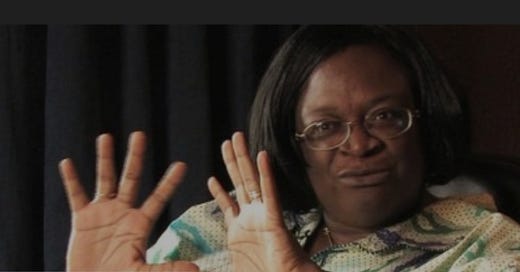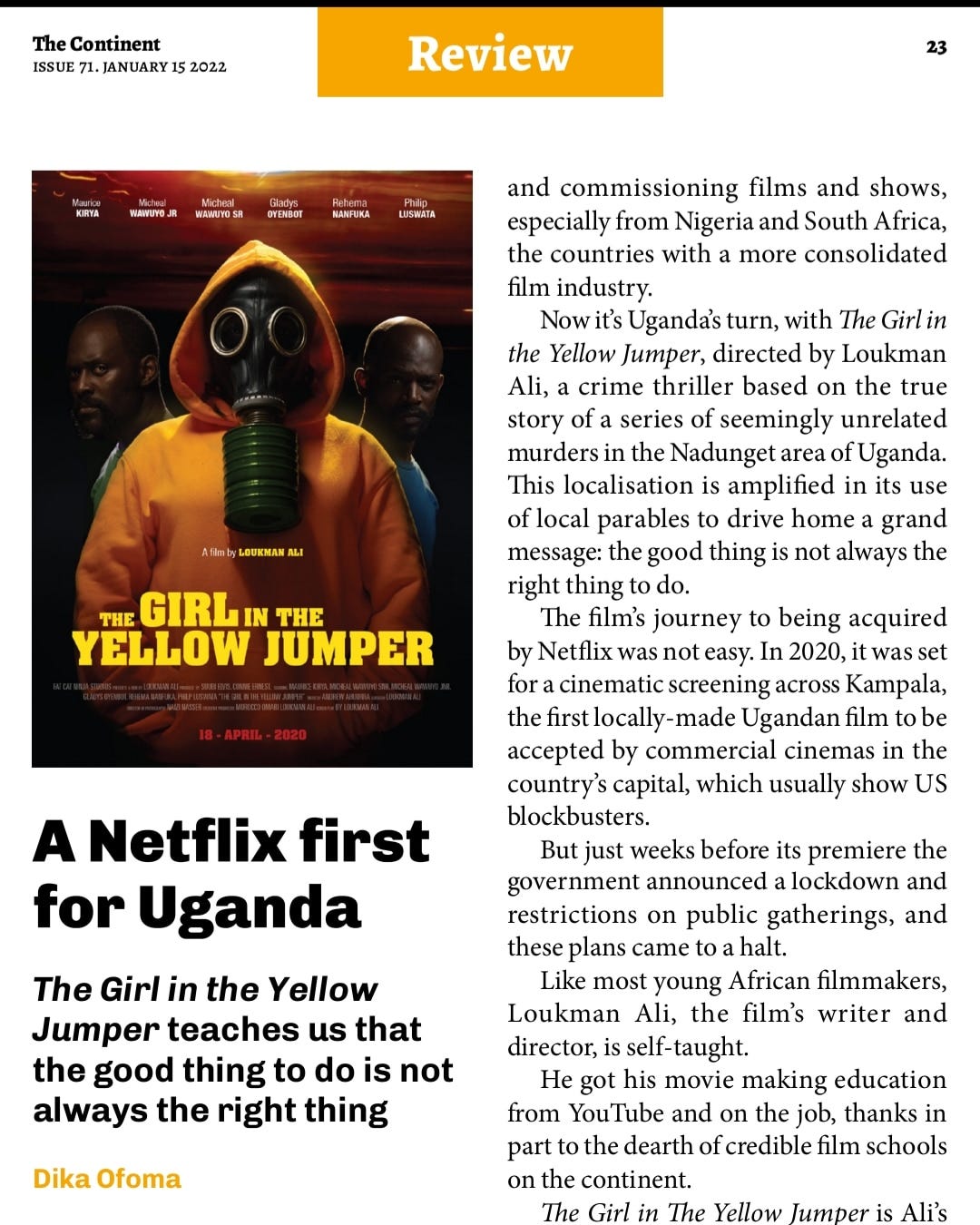Writing about Amaka Igwe and a film recommendation for the weekend
I remember the night I saw Violated for the first time. It was sometime in 2019. I went on a rave/rant on my WhatsApp Status from the excitement and apart from singing praises of the film, one of the things I said was that New Nollywood had no excuse for its shitty storytelling. I could surely see the inadequacies with cinematography and production value in Violated but the beauty of the story remained. It had heart and was resolute about its themes. That’s what I look out for in films. Just tell me a good, well-constructed story that works my emotions and I'm satisfied. Amaka's other films made me feel that way. Rattlesnake. Forever. A Barber's Wisdom. I'm yet to see her 1999 film To Live Again. But I'm certain I would like it too.
I learnt about Invisible Women from writer and film critic Fareeda Abdulkareem. She sent me a link to their call for pitches on Instagram in October. They were looking for writers who would introduce them to female filmmakers outside of European cinema, whose works date back a decade ago. I couldn’t think of any other Nigerian filmmaker to document other than Amaka Igwe.
Even before writing about Amaka, I had read and watched her interviews. I wanted to get to know her beyond her films. What was she like? She was very opinionated. You could see her passion for the industry. She criticised the critics who would criticise Nollywood's failings without taking into cognisance the challenges that come with working in an underfunded industry. She believed the only deterrence to Nollywood's growth was the lack of money. Money would buy the training needed to make quality films, she had said once.
Amaka was a consummate artist and one of our finest filmmakers. I feel honoured that I got an opportunity to document some areas of her life and career and on this month of her posthumous birthday. The article was published ten days after. On the 12th. She was born on 2nd January 1963.
I'm also happy I spoke to Ego Boyo for the piece. She was a friend of Amaka’s and partnered with her on projects like Violated and To Live Again as well as being the lead actor in her first TV creation Checkmate. I asked what it was like working with Amaka, her relationship with her cast and crew and this is what Ego said:
"She was an educator and generous with sharing the knowledge that she gained. She was very good at correcting people and even learning from them. She was like a sponge. Initially, when she started Checkmate, she hadn’t really done a lot of productions at the time. She had done one or two in Enugu, but she threw herself wholeheartedly into it. She formed her company at the time with Tammy Abusi and Bolaji Dawodu. They produced Checkmate. She was mainly the writer but after that, she learnt through observing and just being around production. And through training herself and her mind, she was able to get a lot of knowledge and an understanding of production. And having the mind of an artist and a creator, she was also able to see the vision from her writing. She was also very good on set with the cast and the crew, she was one of those directors that got so much out of you. She was very warm. She would cajole you and encourage you, tease you, and just talk you through what it is she wanted. and it was very easy to work with her because of her style. it was very easy to see the vision. With her crew, it was the same."
One thing I found fascinating about Amaka was that in her films she credited the writing to her maiden, unmarried self Amaka Isaac-Ene, while directing credit was to Amaka Igwe. I've always wondered about that, the why of it, and had hoped to get the answers writing this piece but that didn't happen. I hope I find the answer someday.

So here's my profile of Amaka Igwe:
https://www.invisible-women.co.uk/post/spotlight-amake-igwe
Please read it if you're yet to and share.
What are you doing this weekend?
I'd be writing and tweeting and scrolling Instagram through the weekend, but if you've got free time and are looking for something to watch, please see this beautiful Ugandan film The Girl in the Yellow Jumper. I shared my thoughts of the film for The Continent and the review includes an interview with the filmmaker Loukman Ali about making the film and the journey to the release. He spoke about a few of the challenges and one was how limited budget was. At some point, they ran out of money. "We had no money", he said. "We got kicked out of a location because we didn't have $10 to bribe a guard. No one on the crew had that much left on him."
They had to take breaks from time to time and that created continuity issues as some actors withdrew from the project. He had to introduce masks and body doubles to hide the replacement of actors. It was tough for them. But the film is currently streaming on Netflix and it's the first film from Uganda to be on the platform. Give the film your time, I guarantee that it is worth it.
Watch here:
https://www.netflix.com/us/title/81505036?s=a&trkid=13747225&t=cp&vlang=en&clip=81507570
Till next time.




